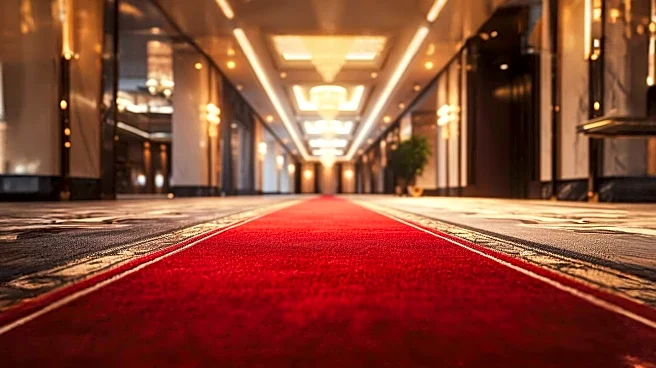What's Happening?
The event industry is witnessing a shift towards 'quiet luxury,' a concept that emphasizes intention, restraint, and authenticity over ostentatious displays. This change reflects a broader cultural and economic
prudence, where extravagance is increasingly seen as tone-deaf in uncertain times. The trend is driven by affluent consumers who prefer subtlety and nuance over overt status symbols. Experiential creators are responding by focusing on sustainability, craftsmanship, and emotional resonance. Events are now measured by their ability to nourish the body, mind, and memory, rather than just visual spectacle. This approach is evident in recent projects like the Giorgio Armani Tennis Classic, which favored natural light and refined detailing, and activations for brands like Four Seasons Yachts and Hilton Head Island, which complemented their settings rather than competing for attention.
Why It's Important?
The shift towards quiet luxury in the event industry signifies a recalibration of values, where sustainability and authenticity are prioritized. This trend has significant implications for how brands engage with their audiences, as it challenges the traditional notion of luxury as synonymous with excess. By embracing quiet luxury, brands can align with the growing consumer demand for ethical and sustainable practices. This approach not only enhances brand reputation but also fosters deeper connections with audiences who value meaningful experiences over superficial displays. As the industry adapts to these changing preferences, it may lead to more sustainable event practices and a broader cultural shift towards understated elegance.
What's Next?
As the trend of quiet luxury continues to gain traction, event creators and brands are likely to further explore ways to integrate sustainability and authenticity into their offerings. This may involve rethinking event design to prioritize local sourcing, ethical production, and long-lasting materials. Brands may also focus on creating experiences that resonate emotionally with audiences, emphasizing wellness and personal connection. The industry could see a rise in collaborations with certified B Corps and other organizations committed to sustainable practices. Additionally, the concept of luxury shame may drive affluent consumers to seek out experiences that reflect their values, leading to a more nuanced approach to status signaling.
Beyond the Headlines
The embrace of quiet luxury in the event industry could have broader cultural implications, influencing how luxury is perceived across various sectors. As consumers increasingly value authenticity and sustainability, industries such as fashion, hospitality, and travel may also adopt similar principles. This shift could lead to a reevaluation of what constitutes luxury, moving away from conspicuous consumption towards experiences that offer depth and meaning. The trend may also encourage brands to engage in more transparent and ethical practices, fostering trust and loyalty among consumers. In the long term, quiet luxury could redefine the concept of opulence, emphasizing the importance of what is left out rather than what is added.










